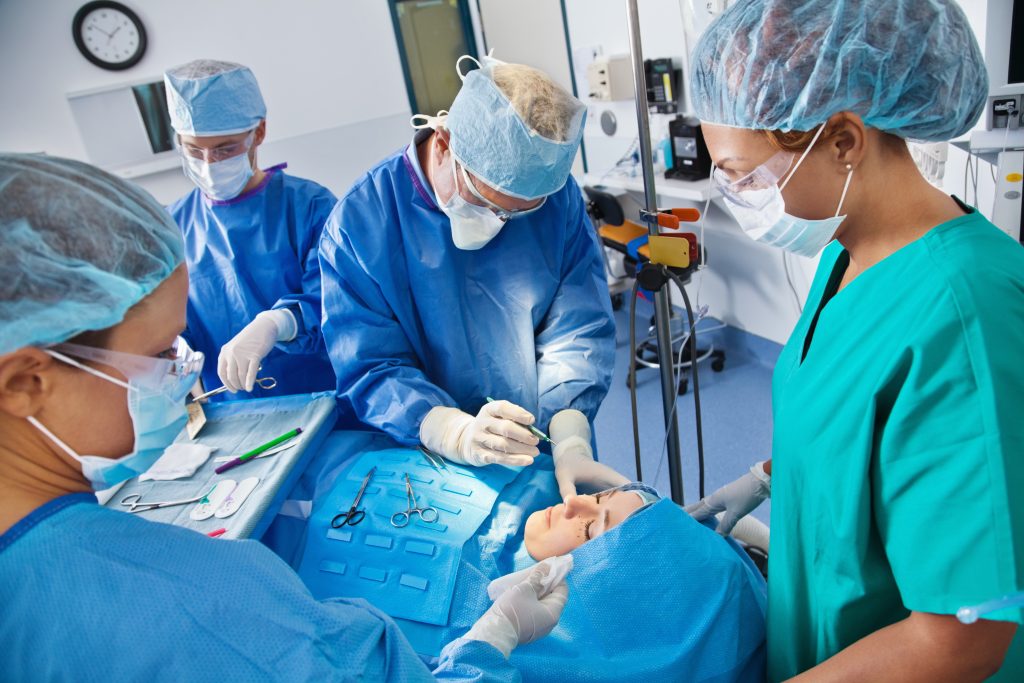Investigating the Emotional and Social Factors That Drive Individuals to Think About Plastic Surgery as a way of Improvement
The choice to pursue cosmetic surgical procedure usually expands past simple looks, intertwining with social and mental characteristics that warrant thorough exam. Factors such as self-confidence, prevalent societal charm standards, and the prevalent influence of social media assemble to form specific motivations for surgical improvement.
The Duty of Self-confidence
Self-worth considerably influences an individual's choice to seek cosmetic surgery. Individuals with low self-confidence often view themselves in an unfavorable light, leading to feelings of inadequacy concerning their physical appearance.

Eventually, the role of self-esteem in the decision-making process regarding plastic surgery highlights the complex interaction in between body picture, individual complete satisfaction, and psychological health. Comprehending this relationship is important for medical care experts to make certain that people are making notified choices rooted in realistic assumptions and emotional well-being.
Social Beauty Standards
Influenced by prevalent media portrayals and social stories, social charm requirements play a vital duty fit people' perceptions of their own bodies. These standards are frequently identified by an idealized type of appeal that emphasizes characteristics such as symmetry, slimness, and youthful vigor. As these suitables are continued through numerous channels, consisting of advertising and marketing, film, and tv, individuals regularly internalize these messages, bring about frustration with their all-natural appearance.
The effects of these societal standards prolong past visual choices; they can influence self-esteem, mental health and wellness, and social connections. People that regard themselves as disappointing these requirements may experience feelings of insufficiency, motivating a desire for cosmetic surgical treatment as a way of achieving social approval. This quest is often fueled by the belief that satisfying these ideals will certainly enhance not just physical appearance yet likewise social standing and individual gratification.
Impact of Social Media
The effect of social charm standards is additional enhanced by the rise of social media platforms, where curated pictures and idyllic depictions of beauty are common. Users are frequently revealed to filteringed system and modified photos, which frequently illustrate unattainable physical qualities. This exposure grows a society of contrast, leading people to analyze their very own appearance against these commonly unrealistic standards.
Social media influencers and celebrities often promote cosmetic procedures, normalizing the notion that medical improvements are a practical ways for achieving societal suitables (plastic surgery rancho cucamonga). The visibility of these enhancements can produce a perception that undergoing cosmetic surgical procedure is a conventional technique, thus affecting people to consider similar interventions as a pathway to enhanced self-esteem and social acceptance
Additionally, the interactive nature of social media enables instant feedback through likes and comments, even more strengthening the need to adhere to popular elegance criteria. Such interactions can worsen sensations of insufficiency and drive people towards cosmetic surgical procedure as a means of obtaining validation. Inevitably, social media plays a pivotal duty in shaping perceptions of beauty, which considerably affects the decision-making processes surrounding plastic surgery.

Social Point Of Views on Appearance
Throughout various cultures, perceptions of appearance are deeply rooted in historic, social, and economic contexts, forming individuals' sights on appeal and charm. In numerous societies, appearance functions as a substantial marker of identity, affecting social status, specialist opportunities, and personal partnerships. As an example, in some societies, light skin is often associated with wealth and privilege, while others might glorify darker complexion as signs of stamina and credibility.
Furthermore, standard beauty requirements are usually perpetuated via social narratives, media depictions, and family influences, leading to differing suitables throughout different regions (plastic surgery rancho cucamonga). In Western cultures, the focus on young people and fitness commonly drives individuals towards aesthetic enhancement, while in certain Eastern cultures, more refined adjustments aligned with typical aesthetics might be chosen
Globalization and the expansion of electronic media have even more complicated these dynamics, creating a hybridization of charm perfects that goes beyond geographical limits. As people increasingly browse these cultural stories, the stress to adapt particular appearance criteria can cause the wish for plastic surgery, showing a complex interaction of social worths and individual goals. Comprehending these cultural viewpoints is essential in attending to the motivations behind cosmetic surgical treatment factors to consider.
Psychological Impacts of Aesthetic Surgery
Numerous individuals looking for plastic surgery report experiencing extensive psychological influences that can considerably modify their self-perception and psychological health - plastic surgery rancho cucamonga. The need for physical enhancement usually comes from underlying problems such as reduced self-confidence, body dysmorphic disorder, or social pressures concerning appeal criteria. For some, the immediate post-operative phase can lead to a short-term boost in self-confidence and satisfaction with their appearance, fostering a feeling of empowerment
Nonetheless, these positive feelings might not be sustaining. Research shows that while some clients experience boosted self-confidence, others may deal with intense stress and anxiety or depression if their expectations are not met. This discrepancy can occur from impractical suitables perpetuated by media representation and social narratives bordering have a peek at these guys beauty.
In addition, the mental implications of plastic surgery prolong beyond the person. Relationships with friends and family might be stressed as social characteristics shift, causing feelings of isolation or alienation. Eventually, the psychological impacts of cosmetic surgical treatment are complicated and multifaceted, requiring careful factor to consider by both prospective clients and doctor to make sure enlightened decision-making and practical expectations.
Conclusion
Finally, the choice to go after plastic surgery is substantially influenced by a mix of self-confidence problems, societal appeal requirements, and cultural perspectives on appearance. The prevalent reach of social networks further worsens these stress, advertising unrealistic suitables that people typically strive to obtain. Understanding these social and mental variables is vital for addressing the motivations behind cosmetic surgical procedure, highlighting the demand for an extra nuanced discussion bordering charm and self-acceptance in contemporary culture.
The decision to web link pursue cosmetic surgery often expands beyond simple appearances, linking with social and mental dynamics that warrant detailed assessment. Inevitably, social media plays a crucial duty in shaping understandings of appeal, which substantially affects the decision-making procedures bordering cosmetic surgery.
As individuals significantly navigate these social stories, the pressure to adhere to certain look requirements can lead to the wish for cosmetic surgical treatment, reflecting an intricate interaction of personal goals and social values.In final thought, the decision to pursue cosmetic surgical procedure is significantly influenced by a combination of self-worth concerns, societal beauty standards, and cultural viewpoints on look. Recognizing these psychological and social elements is essential for attending to the motivations behind cosmetic surgical treatment, highlighting the requirement for a much more nuanced discussion bordering charm and self-acceptance article in contemporary society.